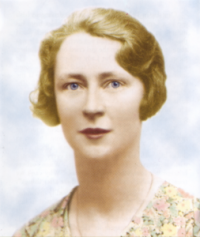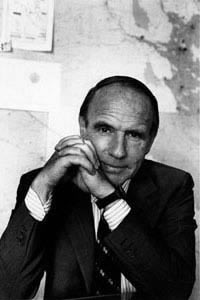A Quote by Charles Horton Cooley
Each man must have his I; it is more necessary to him than bread.
Related Quotes
Each morning at Holy Mass, the Bread of Life will help the body as well as the soul, if we have faith. If we but touch the hem of His garment...and how much more have we than that! We can find Him, at every moment, on the altar. Be with Him there. Better than all books! Thank the Trinity over and over again for this Gift. Rest in His presence, and my guardian angel will adore Him for me. Silence.
You are angry with your neighbor, you despise him, do not like to speak peaceably and lovingly to him, because there is something harsh, abrupt, careless, unpleasant to you in his character, in his speech, in his manners-because he is more conscious of his dignity than perhaps is necessary; or because he may be somewhat proud and disrespectful; but you yourself, your neighbor's physician and teacher, are more guilty than him.
His books were part of him. Each year of his life, it seemed, his books became more and more a part of him. This room, thirty by twenty feet, and the walls of shelves filled with books, had for him the murmuring of many voices. In the books of Herodotus, Tacitus, Rabelais, Thomas Browne, John Milton, and scores of others, he had found men of face and voice more real to him than many a man he had met for a smoke and a talk.
The fact is that men need women more than women need men; and so, aware of this fact, man has sought to keep woman dependent upon him economically as the only method open to him of making himself necessary to her. Since in the beginning woman would not become his willing slave, he has wrought through the centuries a society in which woman must serve him if she is to survive.
Patience is a most necessary qualification for business; many a man would rather you heard his story than granted his request. One must seem to hear the unreasonable demands of the petulant, unmoved, and the tedious details of the dull, untired. That is the least price that a man must pay for a high station.
The more complex our security becomes, the more complex our enemy's efforts must be.The more we seek to shut him out, the better he must learn to become at breaking in.Each new level of security that we manage becomes no more than a stepping-stone for him who would surpass us, for he bases his next assault upon our best defenses.It is a ware that can never truly be won… but one we dare not lose.
Who knows better than a peasant farmer the agricultural conditions in his country or region? It is not always necessary to send an FAO expert to tell him what crops to grow or what seeds to use. Give him the seeds he asks for, and he will do the rest. Don't tell him how to renovate his irrigation system: give him the necessary equipment and he will do the job far better than us.
Let the watchwords of all our people be the old familiar watchwords of honesty, decency, fair-dealing, and commonsense."... "We must treat each man on his worth and merits as a man. We must see that each is given a square deal, because he is entitled to no more and should receive no less.""The welfare of each of us is dependent fundamentally upon the welfare of all of us.



































